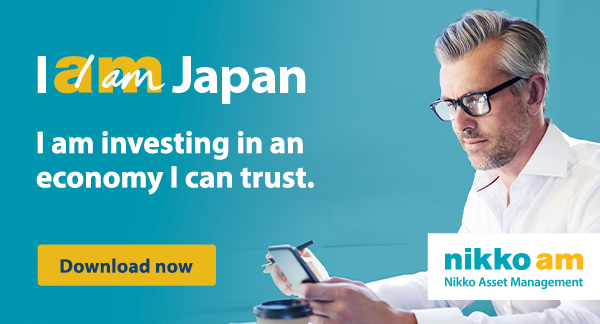Insights
New Zealand Fixed Income Monthly – November 2022
Although New Zealand’s November 2022 rate hike was larger than expected, markets had been pricing in aggressive tightening for quite some time. This may soften the impact of the current challenges. Given that yields on some bonds are now approaching 6%, we feel that stronger income generation opportunities are also providing a silver lining in the fixed income market.
2023 Asian equity outlook
As we look towards 2023, it is easy to be overwhelmed by the broader permutations of possible outcomes. But things don’t appear so dire in Asia. Inflation, which is effectively a value transfer from net consumers to net producers, may continue to benefit India and pockets of ASEAN due to favourable demographics and rising productivity.
Navigating Japan Equities: Monthly Insights from Tokyo (December 2022)
This month we discuss the prospects of Japanese equities remaining well-supported into 2023 thanks to robust exports and inbound demand. We also explain why the markets are looking beyond a dip in Japan’s 3Q GDP, focusing instead on the prospect of growth resuming.
New Zealand Equity Monthly – November 2022
The cost of living and the cost of doing business are still weighing down on New Zealand’s consumers and companies as the end of 2022 approaches. On the corporate side, New Zealand’s companies continue to grapple with wage inflation driven by a scarcity of workers, higher logistics costs amid lingering supply chain issues, and elevated interest costs as hikes in the Official Cash Rate continue to bite.
2023 Japan equity outlook
As geopolitical risks and globalisation are reassessed in the wake of the COVID-19 pandemic and war in Europe, we believe that Japan stands to benefit as more companies refocus on their home markets.
2023 New Zealand fixed income outlook
New Zealand’s Official Cash Rate and short-term interest rates may stay elevated in 2023 but longer-term interest rates are likely to decline starting in the second half of the year as financial markets begin pricing in the possibility of rate cuts. Falling rates could see a stabilisation of the housing market and an improving outlook for the economy and financial market returns.
2023 Global multi-asset outlook
On balance, we are constructive mainly for valuation support and growth prospects improving for China with a firm tailwind from an easing dollar. Pockets of the US equity market may struggle on weaker earnings, but the rest of the world should still fair relatively well provided the US does not enter a deep recession.
2023 Global macro outlook: Ten predictions
No single catch-phrase epitomises the 2023 global macro outlook, but here are ten predictions for the year ahead.
2023 New Zealand equity outlook
Labour shortages and inflation are expected to pressure the New Zealand economy in 2023. That said, New Zealand’s listed market is more defensive than the broader economy with large weights in defensive sectors such as utilities and telecommunications.
2023 Global equity outlook
Some of the factors that have shaped 2022 look less likely to recur in 2023 (for instance, supply chain duress because of COVID containment) but others will likely last longer (most notably a higher cost of capital). We are cautiously optimistic that less aggressive monetary policy will eventually make 2023 a kinder year for equity markets but there may yet be shocks to overcome.
2023 Singapore equity outlook
We expect a moderation of growth, a peak in inflation and a more accommodative monetary policy in 2023. We see this as a positive for Singapore, as we believe a more accommodative policy backdrop will help support continued expansion in corporate earnings growth in 2023.
2023 China equity outlook
We believe that the rewards will outweigh the risks related to China amid an existence of enough cyclical, thematic and structural trends that could enable the country to outperform in 2023; particular focus will be on the government’s zero-COVID policy and its support for the property sector.
2023 Asian rates and FX outlook
Most Asian countries are expected to grow at a slower pace in 2023 than they did in 2022, and fiscal stimulus will no longer be a dominant factor driving growth in the region. We expect monetary policy outlook to persist as the primary driver of rates in 2023 with focus on the potential end to the tightening cycle.
2023 Global Fixed Income outlook
We present our 2023 outlook for core markets, emerging markets and global credit.
2023 Asian credit outlook
We believe that the benign macro backdrop should remain supportive for credit fundamentals in 2023. The fiscal deficits of Asian economies are expected to gradually narrow as the need for pandemic support decreases.
Japan’s “show me the money” corporate governance: 3Q, another record high
The just-released 3Q CY22 data on aggregate corporate profits in Japan was very positive, with the overall corporate recurring pre-tax profit margin hitting a record high on a four quarter average.
China’s bond market is exhibiting low correlation to other asset classes, displaying historically lower volatility, enjoying continued internationalisation of the renminbi and benefitting from the country being included in globally recognised indices.
Balancing Act-Monthly insights: Multi-Asset Team-November 2022
This month, Fed Chair Powell seemed hellbent on quashing any last hope of a pivot or at least slowing the pace of rate hikes sometime soon. But this crushing blow to hope helped sow the seeds of an eyewatering rally when one inflation print showed some promise—hence, the manic cycle continues.
On the Ground in Asia-Monthly Insights: Asian Fixed Income-October 2022
We are inclined towards Singapore and South Korean government bonds, given their relatively higher sensitivities to stabilising US Treasury yields. In currencies, we see the Singapore dollar continuing to outperform its regional peers.
Harvesting Growth, Harnessing Change - Monthly Insights: Asian Equity-October 2022
The ASEAN region fared better on the whole in October thanks to gains by the Philippines and Malaysia; Hong Kong and Taiwan stocks were volatile while the China market continued sliding.
New Zealand Equity Monthly – October 2022
A notable feature of global equities this year has been the significant divergence seen among indices. New Zealand’s S&P/NZX 50 Index has provided an example of this by following a different track to the overall global trend so far.
New Zealand Fixed Income Monthly – October 2022
As in the rest of the world, consumers in New Zealand are facing significant headwinds as the cost of living rises. The consensus was for inflation to decline rapidly after peaking, but the data now show that New Zealand’s inflation is becoming significantly entrenched, broad based, and domestically driven.
Navigating Japan Equities: Monthly Insights from Tokyo (November 2022)
We discuss Japan’s recent currency market interventions from an equity market perspective; we also share our thoughts on steadily rising inflation after a surge in the September core CPI.
Why convexity matters
Yields have moved significantly this year, challenging the assumption that the relationship between a bond’s price and yield is linear. We discuss convexity, which measures how sensitive a bond’s duration is to yield changes, and its importance under the current conditions.
Inbound tourism: An immediate boost for Japan
As Japanese Prime Minister Fumio Kishida focuses on various economic initiatives to shore up his support ratings, the revival of inbound tourism is seen as a measure that can provide the economy with an immediate boost.
The potential implications of China’s 20th Party Congress
China’s 20th Party Congress ended on 23 October with President Xi Jinping winning an unprecedented third term as expected. We provide a brief analysis of the Congress and the impact it could have on China’s zero-COVID policy and the capital markets.
Global Unconstrained Bond Fund Q4 2022 Outlook
We present our Q4 2022 outlook for the Global Unconstrained Bond Strategy which incorporates our core markets, emerging markets and global credit views.
The future looks bright for Asia’s equity markets
Asia continues to offer opportunities in terms of attractive companies; on a relative basis, Asian markets look set to outperform as the region becomes an even more important part of the global economy.
Global Equity Quarterly (Q3 2022)
The low for this bear market could be a lot closer at hand now than it was, with equity valuations having fallen considerably. We remain focused upon assessing our companies’ ability to deliver earnings expectations and cash generation. These give us confidence in the long-term, even if shorter-term developments remain volatile.
New Zealand Fixed Income Monthly – September 2022
Compared to its global peers the New Zealand bond market was stable in September. In the coming months, the New Zealand market is unlikely to see UK levels of volatility; one factor behind the turmoil in the UK, for example, was the country’s very high rate of inflation and associated pressure from energy issues. Uncertainty over a potentially large public fiscal outlay was similarly UK-specific.
New Zealand Equity Monthly – September 2022
The recent reporting season showed that New Zealand’s “gentailers” (companies that both generate and sell energy) remain committed to developing renewable generation capacity, with five such projects currently under construction. However, a rise in the cost of developing such capacity in the past 12 months is creating a significant challenge for gentailers.
On the Ground in Asia-Monthly Insights: Asian Fixed Income-September 2022
Going forward, despite some expected moderation amidst the slowdown in global growth, we believe that growth and corporate credit fundamentals will remain sufficiently robust to prevent a meaningful widening of credit spreads. However, some modest widening may be expected in the near term, with the benchmark spread level at the tighter end of the expected medium-term range and given the plethora of global market risks.
Balancing Act-Monthly insights: Multi-Asset Team-October 2022
Central bank tightening is beginning to have an impact, but less evidently in terms of easing inflationary pressures than in causing strains on the global financial system. Policymakers are beginning to blink—first with Japan intervening to support the yen for the first time since 1998, followed by the Bank of England (BOE) returning to quantitative easing (and postponing planned quantitative tightening) to ease pressures on the UK pension system following an ill-advised fiscal easing by new UK government leadership.
Harvesting Growth, Harnessing Change - Monthly Insights: Asian Equity-September 2022
Rising interest rates and inflation woes continued to weigh on regional and global markets. US consumer prices registered above expectations with the August consumer price index (CPI) jumping 8.3% year-on-year (YoY). The tight labour market made further case for a rate hike, culminating in a 75-basis-point (bps) interest rate hike by the US Federal Reserve (Fed).
Investing in a multipolar world
Between still high levels of inflation, fast-tightening central banks, a growing energy crisis in Europe and slow growth in China, it is easy to imagine a bleak growth outlook. But these difficult dynamics also harbour opportunities often masked in exaggerated mispricing based on fear and confusion.
Navigating Japan Equities: Monthly Insights from Tokyo (October 2022)
This month we analyse what immediate impact the full reopening of Japan could have on the economy and markets; we also review the factors that may make Prime Minister Kishida’s “asset-income doubling plan” more effective in the long term.
A big comeback: Rising fortunes of Asia’s small caps
Global Investment Committee’s Outlook: Negative 4Q, then central banks relent and markets rebound
Our scenario is fairly ugly for the 4Q, but has a strong silver lining thereafter. We are not optimistic about the global economy and investor returns reverting to normal for an extended period, but there should be clear intermediate term relief and pockets of strong outperformance due to idiosyncratic advantages.
Enhancing returns from opportunities in global credit
The current environment in fixed income is definitely challenging for investors as the rate cycle has turned. However, we believe that by unlocking the full performance potential of the different credit asset classes achieving positive absolute performance is still possible.
Balancing Act-Monthly insights: Multi-Asset Team-September 2022
The world is fast entering the adjustment phase as deglobalisation is accelerating, requiring new solutions and investment to clear new imbalances from energy supply to labour and eventually normalise inflation.
ESG through an Asian equity lens
In recent years, the increased focus on ESG has validated our beliefs. Yet, the complex and fast-changing economies and societies that make up Asia continue to be a challenge confronting investors looking to apply ESG analysis across Asian asset classes. This is a good thing, as investors who can do this successfully will likely add even more value to alpha generation.
On the Ground in Asia-Monthly Insights: Asian Fixed Income-August 2022
Inflationary pressures continued to remain elevated in July, as the headline CPI numbers in South Korea, Singapore, Indonesia and the Philippines increased, while those of Thailand and India moderated. During the month, the central banks of Thailand, Indonesia, the Philippines, South Korea and India raised their key policy rates.
Harvesting Growth, Harnessing Change - Monthly Insights: Asian Equity-August 2022
The regional index of the MSCI AC Asia ex Japan in August was flat at 0.0% in US dollar terms, recovering after falling into negative territory earlier. The North Asian region was weighed down by foreign currency effects, trailing behind its ASEAN counterpart. India benefitted from its rate hike and lower oil prices.
New Zealand Equity Monthly – August 2022
In an encouraging sign for New Zealand equities, the benchmark NZX 50 Index ended August approximately 10% higher compared to the lows it saw in June, when it dropped below the 11,000 level for the first time in two years. However, the market still faces challenges given that at the end of August the index was also down about 10% compared to the start of 2022.
New Zealand Fixed Income Monthly – August 2022
New Zealand bonds went through a tough period in August. The rough patch reflects continuing uncertainty, with the bond market undecided about whether it should focus on inflation itself or pay more specific attention to the measures that central banks are adopting to deal with it.
Navigating Japan Equities: Monthly Insights from Tokyo (September 2022)
This month we discuss the factors behind Japan’s high level of share buybacks; we also look at the economic implications of COVID in the wake of a particularly large infection wave.
Japan Value Insights: Creating economic wealth by utilising forest resources
Utilising and regenerating Japan’s ample forest resources by promoting a “wood cycle” could contribute to the creation of economic wealth and a net-zero carbon future.
Japan’s “show me the money” corporate governance: 2Q record high
The just-released 2Q CY22 data on aggregate corporate profits in Japan was very positive, with the overall corporate recurring pre-tax profit margin hitting a record high on a four quarter average.
Global Equity Quarterly (Q2 2022)
Our belief is that we have moved into a new regime where inflation will be structurally higher despite the anchors of high debt burdens, ageing societies and ongoing technological disruption.
On the Ground in Asia-Monthly Insights: Asian Fixed Income-July 2022
We are taking a more constructive view in duration overall, as we believe that the markets have largely priced in hawkish Fed expectations. Among the low-yielding countries, we prefer Singapore and Hong Kong, while we like Malaysia and India among the mid- to high-yielding countries. On currencies, we maintain our preference for the Singapore dollar.























































